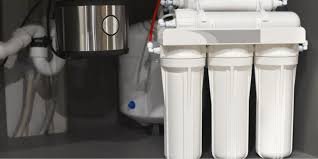Water is a crucial element that we need to survive. In fact, the human body is made up of about 70% water. That being said, it’s important to ensure that the water we consume is clean and safe for consumption. In many areas, the water supply comes from municipal sources, which may or may not be safe to drink. That’s why every home needs a water filter. In this article, we’ll explore the benefits of home water filters and why you should consider installing one in your home.
What are Home Water Filters?
Home water filters are systems that are designed to remove impurities from the water supply before it enters your home. They can be installed at the point of entry, where the water enters your home, or at the point of use, where it’s needed, such as under the kitchen sink or in the shower. There are several types of home water filters available in the market, ranging from basic activated carbon filters to more advanced reverse osmosis systems.
The Benefits of Home Water Filters
There are several benefits to installing a home water filter. Firstly, it ensures that you and your family are consuming clean, safe and healthy water. Water filters remove impurities such as chlorine, lead, bacteria and parasites that may be present in tap water. This helps to reduce the risk of waterborne illnesses and diseases caused by contaminated water. Secondly, using a water filter can improve the taste and smell of your drinking water by removing the unpleasant chemicals and minerals that can make it taste or smell bad. Additionally, installing a water filter can also help you save money in the long run as you won’t need to buy bottled water anymore. It also helps you contribute to a sustainable environment by reducing plastic waste and greenhouse gas emissions from transportation and production associated with bottled water. Overall, installing a home water filter is a worthwhile investment for your health, wallet, and the environment.
When it comes to choosing a home water filter, there are several factors to consider:
the type of contaminants that need to be removed, the capacity of the filter, the maintenance requirements, and the cost. It’s important to determine what specific impurities are present in your water, such as heavy metals, chlorine, or bacteria, in order to select the appropriate type of filter. Additionally, consider how much water your household consumes and choose a filter with sufficient capacity. Maintenance requirements can vary by filter type, so factor in the cost and time needed for replacement or cleaning. Finally, consider the initial cost as well as ongoing expenses, such as replacement filters, in order to select an affordable option that meets your needs.
Conclusion
Installing a home water filter is an excellent investment in your health and the health of your family. Not only does it provide you with clean, safe drinking water, but it can also save you money, have environmental benefits, and improve the taste and odor of your water. When choosing a home water filter, be sure to consider the type of filter, size, and maintenance requirements to find the best system for your home. With a home water filter, you can rest assured that the water you drink is of the highest quality.


